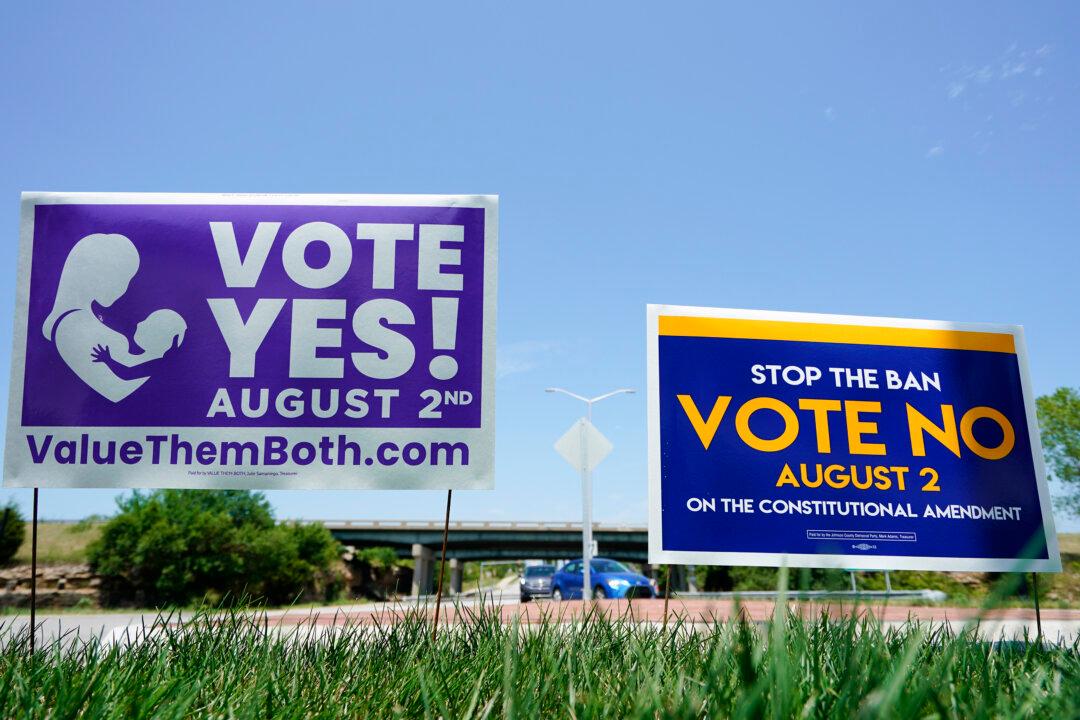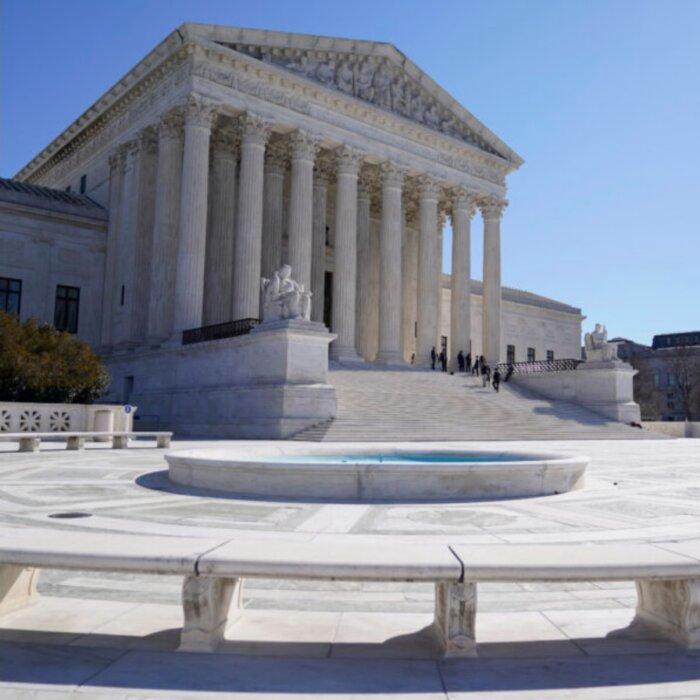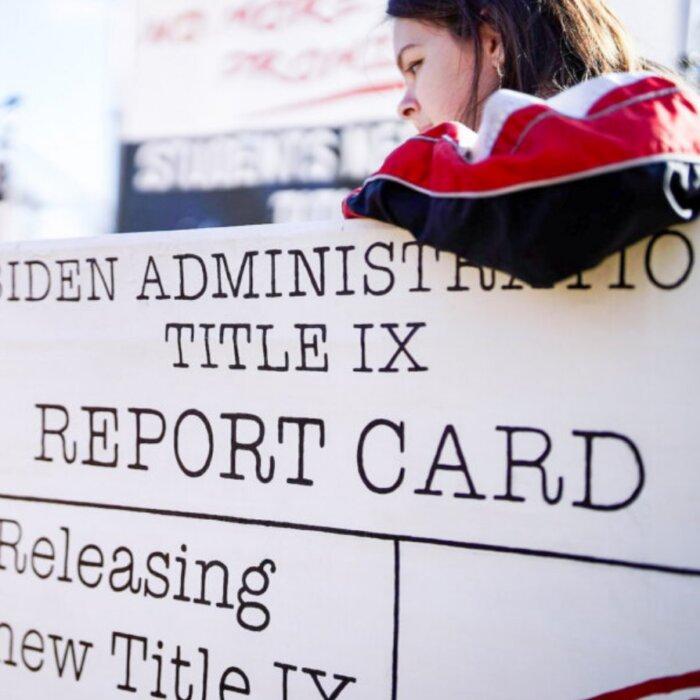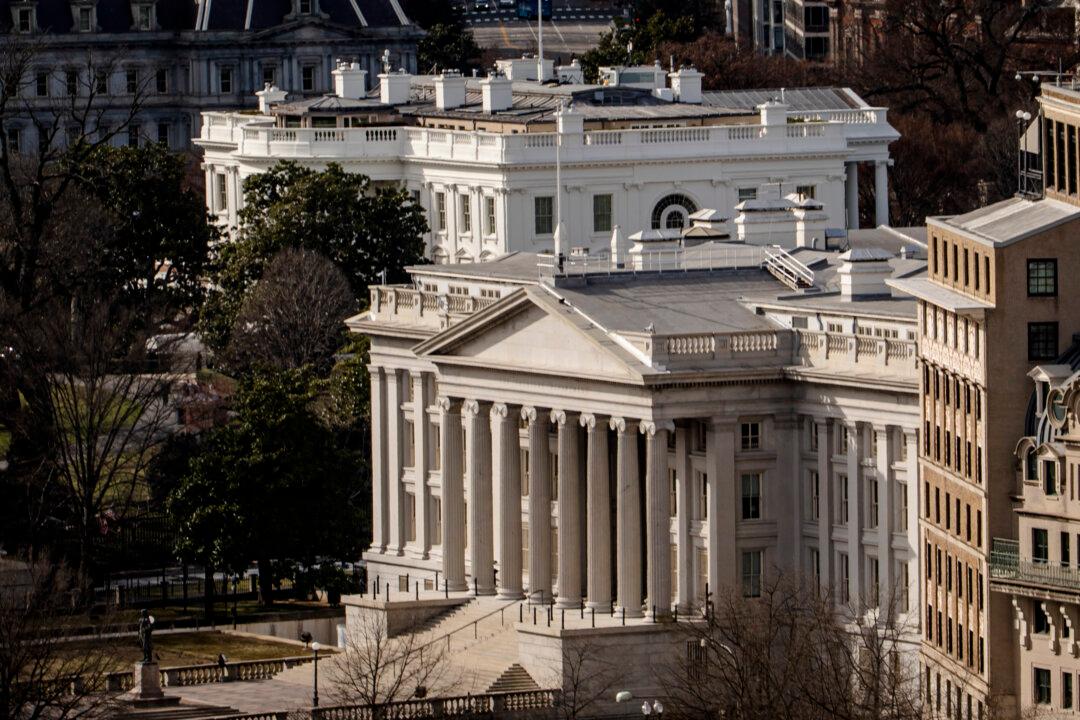Good morning, and welcome to The Epoch Times News Brief for Tuesday, July 9, 2024. I’m Bill Thomas, we’ve got some big stories to get to, and here’s what’s going on.
The Kansas Supreme Court rules on abortion, the U.S. Supreme Court issues a critical ruling regarding subpoenas and state lawmakers, and across the country, tens of millions of people are under heat alerts. Also, iPhone users are at risk of being hacked, and tax deadlines differ this year depending on where you live.
Kansas Supreme Court Strikes Down Abortion Regulations
The Kansas Supreme Court has struck down two laws regulating abortion, reaffirming its stance that the state’s constitution grants its citizens a right to the procedure.The court found in two separate cases that a 2011 law, which imposed strict requirements pertaining to the licensing of abortion facilities, and a 2015 ban on certain abortions infringed on a woman’s constitutional right to personal autonomy.
The court’s decision is in line with the sentiment of Kansas voters, who rejected a constitutional amendment that would have clarified that the state constitution does not include a right to abortion and that the Legislature has the authority to pass laws regulating the procedure. This all happened just two months after the U.S. Supreme Court’s 2022 Dobbs decision, which overturned the national right to abortion and returned the issue to the states.
This past March, Kansas Solicitor General Anthony Powell argued that the state Supreme Court should “revisit” the issue, but Kansas Supreme Court Justice Dan Biles pointed to the voters, who he says made their decision by rejecting that state amendment.
Kansas law currently permits abortions until 22 weeks of pregnancy, after which the procedure is banned except in medical emergencies. For the procedure to be performed on a minor, an abortion provider must obtain the written consent of both the child and a parent or guardian.
Other restrictions passed by the state’s Republican-led Legislature—including a mandatory 24-hour waiting period—remain tied up in legal challenges.
Supreme Court Rejects Lower Court Ruling Shielding State Lawmakers From Subpoenas
The high court has overturned an appeals court ruling that kept Republican state legislators in North Dakota from having to comply with subpoenas in a voting rights lawsuit.The case in question is Turtle Mountain Band of Chippewa Indians v. North Dakota State Legislative Assembly.
The high court’s decision quashes a ruling by the U.S. Court of Appeals for the Eighth Circuit that put the legislative privilege of state lawmakers against being subpoenaed on an equal footing with that of federal lawmakers.
The case challenged a state-legislative redistricting plan. A Native American tribe had sued back in 2021, targeting communications among six current and former Republican legislators, saying that it needed the communications to prove that some lawmakers had an “illicit motive” in developing the redistricting plan.
The tribe argued that the plan violated Section 2 of the federal Voting Rights Act, which prohibits voting practices or procedures that discriminate on the basis of race, color, or membership in a large language minority group.
The Eighth Circuit court had previously held that legislative privilege is needed so public servants can do their jobs without worrying about constant litigation, and that precedent implies that state lawmakers are entitled to the same protection as lawmakers in the U.S. Congress.
The tribe argued, in its petition to the high court, that the appeals court erred by creating an “expansive conception of the legislative privilege [that] is at odds with every other circuit to have considered the issue,” and a federal district court ruled in favor of the tribe.
Native American Rights Fund staff attorney Michael Carter praised the high court’s decision to vacate the Eighth Circuit’s decision, claiming that the wording in the Eighth Circuit ruling would have damaged citizens’ rights by placing state lawmakers above the law.
140 Million Americans Under Heat Alerts, Death Valley Reaches 128 Fahrenheit
About 140 million Americans have been under some form of federal heat warning as a days-long heat wave has affected much of the country, especially states on the West Coast.On Sunday, the National Weather Service (NWS) said an excessive heat warning was in effect for about 10 percent of the U.S. population, and many areas in Northern California surpassed 110 degrees. The city of Redding hit a record 119 degrees, while in Arizona, the city of Phoenix set a new daily record on Sunday for never falling below 92 degrees.
This follows last weekend’s sizzling weather, when Death Valley National Park in California hit a record high of 128 degrees. Officials say a visitor died from heat exposure and another person was hospitalized with heat-related injuries.
The heat has also created sweltering conditions as firefighters in California worked over the weekend, fighting several wildfires across the state. In Santa Barbara County, the Lake Fire burned more than 20,000 acres after it broke out last Friday, and is still active.
Meanwhile, in Northern California, a wildfire that broke out on Sunday in Modoc County has burned about 4,000 acres.
The heat wave across the region will continue until later this week.
Warning Issued to iPhone Users as Hackers Target Apple IDs in New Cyberattack
A California-based security firm is issuing a new warning to iPhone users after finding that cybercriminals are actively seeking to exploit Apple IDs through malicious SMS messages.These kinds of scams, also known as SMS phishing, are designed to trick recipients into revealing their Apple ID credentials. It’s also used by hackers to access other sensitive information or to install malicious software on the user’s iPhone.
In its warning, Symantec owner Broadcom Inc. says it discovered a very recent case” of “smishing” in the United States involving hackers distributing deceptive SMS messages that appeared to be from Apple. If a user clicked on the malicious link, they were directed to a webpage mimicking an outdated iCloud login template where they were encouraged to hand over their credentials.
Symantec also said that the scammers included a CAPTCHA—a type of challenge-response authentication used to determine whether the user is human—which users had to complete before proceeding in order to make the phishing attack appear more legitimate. The fake website could even be accessed from a desktop or mobile browser, which the cybersecurity firm said is unusual for SMS phishing.
By the way, these types of scams are not just limited to Apple; users of other devices have also reported that scammers are trying to trick them into revealing their credentials as well.
A good rule to follow to avoid scams or identity theft is to never open suspicious emails or click unsecured links from unknown emails, and be cautious when answering calls or responding to messages from unidentified senders.
IRS Warns Tax Deadline Is Approaching in 3 States
The IRS is giving taxpayers in Maine, Rhode Island, and Alaska a July 15 deadline to file their taxes or make payments for the 2023 year. Residents in those states weren’t required to file their taxes by April 15 due to disaster declarations that were issued for severe storms, landslides, mudslides, and flooding between November 2023 and January 2024.So you know, the agency also says you don’t need to contact them in order to file the late returns, since those areas were automatically given the extra time.
Meanwhile, taxpayers in two Massachusetts counties—Bristol and Worcester—have until July 31 to file their taxes after disaster declarations were issued for those areas, and people impacted by the fires in Hawaii County and Maui County, both in Hawaii, have until Aug. 7 to file their taxes.
Taxpayers in a number of counties in Ohio have until Sept. 3 to file their taxes.
Interesting to note that as of last month, the IRS said that residents of several Oklahoma counties who were subject to federal disaster declarations that began in mid-May have until Nov. 1 to file their taxes and make payments.
Here’s some good news: the IRS is also extending the tax deadline until Oct. 7 for taxpayers who live in or have a business in Israel or people who were impacted by last year’s brutal Hamas terrorist attacks.
Looks like our time is just about up for today, so we’re going to call it a wrap for the Tuesday edition of The Epoch Times News Brief.
If you have some free time today, we hope you’ll tell some folks you know about our program as we continue to grow our always-expanding News Brief Family! And don’t worry about overstaying your welcome—stay as long as you’d like. We have plenty of extra food and space.
Shirley Luckett sent over a lovely note from the Dallas, Texas, area.
Bill Connor is checking out the program from his home base in Wisconsin (The Badger State).
And Lesvita Causland writes in to say that she’s very impressed with the content and short but to-the-point news stories. She says, “Thanks again to the Epoch Times for being such a great source of true reporting in this day when other media outlets only report their biased opinions.”
*(Don’t forget the News Brief Motto): We’re portable, affordable, and we’re always on-demand.
And finally, as we do each and every day on this program, we wrap things up with a very “notable” quote.
This one comes from me—my very own, authentic quote: “Tuesday is the greatest day of the week because Monday is now in our rearview mirror!”
For all of us here at The Epoch Times News Brief, I’m Bill Thomas, and thanks a bunch for spending some time with us today. Enjoy the rest of your tantalizing Tuesday, and we’ll see you right back here tomorrow for the Wednesday edition of The Epoch Times News Brief. Have an awesome day today, and bye for now.







